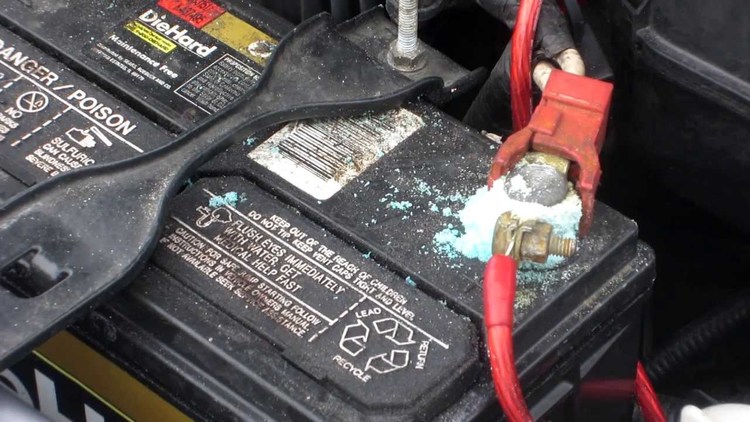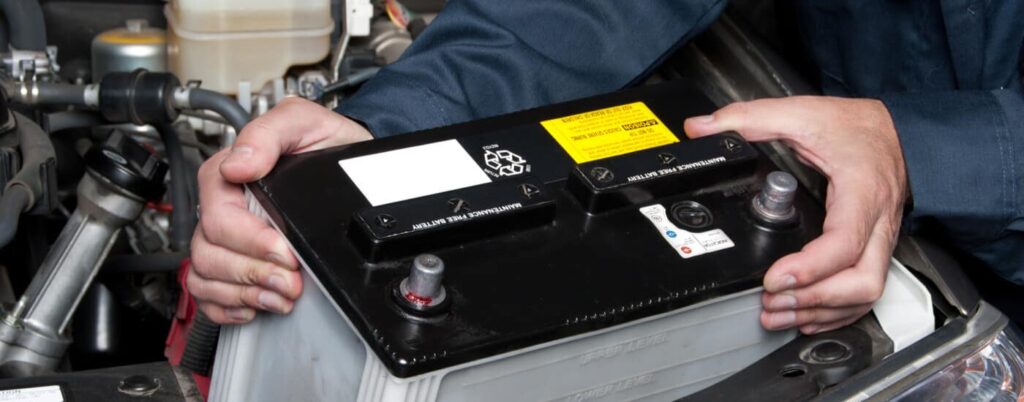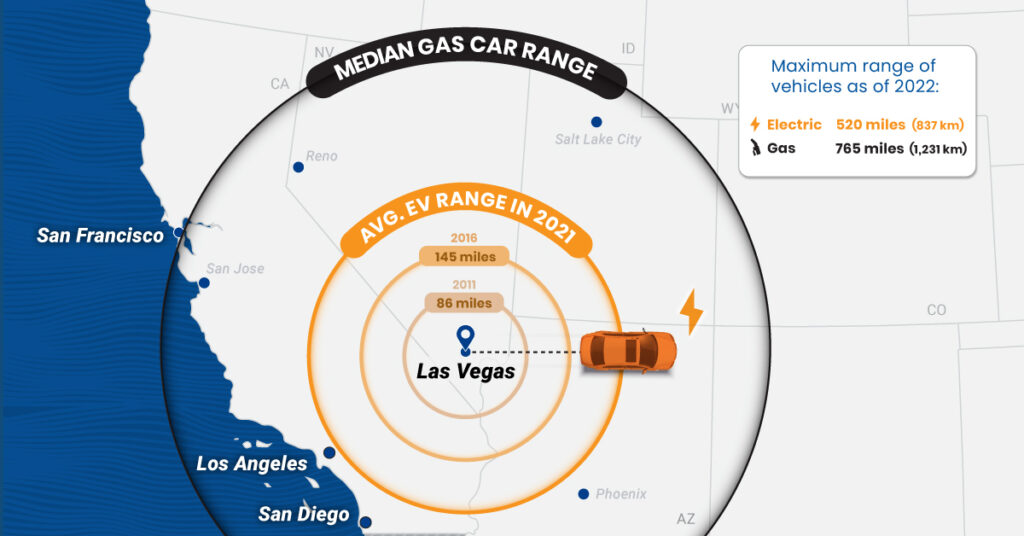Imagine this – you’re running late for work, jump into your car, turn the key, and…nothing. The dreaded “click” of a dead battery. We’ve all been there, left stranded and frustrated by something as simple as a car battery giving out unexpectedly.
So how can you avoid these situations? By understanding just how long car batteries typically last and what factors impact their lifespan. All vehicles, whether petrol, diesel, or electric, rely on batteries to power the engine and electrical systems.
In this comprehensive guide, we’ll dive deep into average car battery life expectancies, warning signs to watch for, maximizing longevity through proper maintenance, battery replacement factors, and much more. Being an informed owner is key to ensuring reliable transportation and preventing unnecessary headaches down the road.
Average Car Battery Life Expectancy
While battery lifespan can vary considerably, there are some typical ranges you can expect:
Petrol and Diesel Vehicles: Most standard car batteries for gas/diesel vehicles last 3-5 years with proper care and maintenance.
Electric Vehicles (EV): The larger battery packs in EVs tend to have significantly longer lifespans, often lasting 8-15 years before requiring replacement.
However, several key factors can cause actual battery lifespan to be shorter or longer than these averages:
Climate: Extreme hot or cold temperatures put extra strain on batteries. In very cold regions, batteries have to work harder to start the engine. Conversely, heat causes faster chemical degradation inside the battery.
Driving Habits: Frequent short trips with numerous engine restarts are tougher on batteries than longer drives. City driving also strains batteries more than highway driving.
Maintenance: Proper battery care through cleaning, electrolyte level checks, and smart charging is crucial for maximizing lifespan.
Understanding these typical battery life ranges and influential factors allows you to properly plan for inevitable replacement intervals and budget accordingly.
Signs Your Car Battery Needs Replacement

Don’t let a dead battery catch you by surprise. There are several common warning signs that your car’s battery is nearing the end of its life:
- Slow Engine Crank: If your engine is cranking slowly when you turn the key, it’s a clear sign the battery may not have enough juice left.
- Diminished Headlights: If your headlights seem dimmer than usual, it could indicate inadequate power from a weakening battery.
- Electrical Component Malfunctions: Does your radio keep resetting? Or dome lights flickering? Electrical gremlins are often tied to battery issues.
- Dashboard Warning Lights: Many cars today will show a battery or charging system warning light when the battery is struggling.
- Unusual Odors: If you notice a rotten egg or sulphuric smell, it could mean a leak or internal damage to the battery.
- Swollen Battery Case: An abnormally swollen or bloated battery case is a sure sign the battery needs immediate replacement.
- Parasitic Discharge: Even when parked, some electrical components can slowly drain the battery’s charge over time through parasitic discharge.
- Visible Cracks or Leaking: Any visible cracks, leaks or excessive corrosion around the battery terminals means it’s time for a new one.
While a single jump start may temporarily revive your battery, repeated jump starts can actually damage the battery further through voltage spikes and lead to complete battery failure down the line.
If you’re experiencing any of the above issues, it’s wise to have the battery tested by a mechanic using professional voltage and load test equipment. Don’t ignore the signs or you may find yourself stranded!
Read This Blog: A Practical Way to Avoid Being Involved in a Work Zone Crash
Tips to Maximize Your Car’s Battery Life
While all batteries will eventually need replacement, there are several simple maintenance tips you can follow to help maximize your battery’s longevity:
- Regular Inspections and Cleaning: Routinely check for corrosion buildup around the battery terminals and cable connections. Clean away any corrosion to ensure proper electrical flow.
- Maintain Proper Electrolyte Levels: For batteries with removable caps, periodically check that the electrolyte fluid levels are within the recommended range and top off if needed.
- Smart Charging During Inactivity: If yur vehicle will be inactive for an extended period, use a trickle charger or float charger to maintain a low, steady charge and prevent battery discharge and degradation.
Taking these simple preventative measures can add years to your battery’s service life and help you avoid the hassle of an untimely replacement.
What to Know About Car Battery Replacement

Unfortunately, even with great maintenance, all car batteries eventually reach the end of their usable life and need to be replaced. When that time comes, here are some key factors to consider:
Group Number: Make sure to match your new battery’s group number to your vehicle’s specifications for proper physical fit and electrical compatibility.
Cold Cranking Amps (CCA): This rating measures a battery’s ability to start your engine in cold weather. Higher CCA numbers are advisable if you live in very cold climates.
Reserve Capacity (RC): The RC rating indicates how long the battery can power accessories like lights and radio if the charging system fails. Higher RC equals longer reserve time.
Maintenance Type: You’ll choose between maintenance-free sealed batteries that never need refilling, or lower-cost batteries that require periodic electrolyte level checks.
Warranty: Most quality batteries come with some type of warranty coverage. Longer warranties signal greater expected durability and longevity.
Cost: Replacement battery costs can range from $50 for basic models up to $300+ for premium AGM or gel batteries. Budget accordingly based on your needs.
It’s also worth checking your auto insurance policy, as most do not cover routine battery replacement under comprehensive coverage since it’s considered standard maintenance.
The Impact of a Dead Battery on Your Car’s Value
Not only is a dead battery inconvenient, it can actually reduce the resale or trade-in value of your vehicle if you try to sell it with a faulty battery installed. The exact percentage of vehicle value lost depends on several factors:
- Age and Condition of the Car:
A dead battery may only knock 1-3% off the value of a nearly-new car. But it could devalue an older, higher mileage vehicle by 5% or more if seen as symptomatic of larger issues.
- Source of the Battery Issue:
If the battery failure was caused by something like leaving headlights on, it’s less concerning. But if the battery is continuously draining, it could indicate an electrical system problem that’s more costly to fix.
- Overall Number of Issues:
A dead battery combined with other mechanical problems will compound the devaluation since buyers see risk of expensive repairs.
The bottom line? It’s always wise to replace a failing battery before trying to sell your car. You should also be upfront and disclose any battery issues to potential buyers to protect yourself legally.
EV vs Gas/Diesel Battery Factors

While many of the same general principles apply, there are some key differences when it comes to battery replacement factors for electric vehicles:
Battery Type and Size:
EV battery packs are exponentially larger, more complex, and comprised of different chemical compositions than standard lead-acid batteries.
Replacement Costs:
Due to their advanced lithium-ion compositions and complexity, replacing the full battery pack in an EV is far more expensive, often costing $5,000-$15,000 or more depending on the model.
Replacement Availability:
As EVs age, sourcing replacement batteries from the manufacturer may become more difficult and costly down the road compared to widely available conventional batteries.
However, EV batteries make up for their higher replacement costs through significantly longer expected lifespans and reduced environmental impact over their service life compared to regularly replacing several lead-acid batteries.
Environmental Impact of Car Batteries

Speaking of the environment, it’s important to consider the ecological effect of both production and eventual disposal of vehicle batteries:
Manufacturing Footprint:
While battery production carries some negative environmental impacts through resource mining and manufacturing processes, much of this is offset through eventual recycling.
- Longevity Benefits:
Batteries with longer usable lifespans, like those in EVs, reduce wasteful and frequent replacement compared to shorter-lived lead-acid batteries.
- Recycling Practices:
Proper recycling practices aim to responsibly recapture as many battery materials as possible for reuse, minimizing landfill waste and environmental contamination.
Looking holistically at the full battery lifecycle, the significantly longer lifespan of modern EV batteries results in less manufacturing impact and waste over the course of a vehicle’s life compared to multiple replacements of conventional batteries.
Read More: How Much Does Renting a Prom Limousine Cost in the USA?
Key Takeaways
We’ve covered a ton of vital information about vehicle battery longevity, warning signs, replacement factors and more. Let’s recap a few key points:
- Typical Battery Lifespan: 3-5 years for gas/diesel cars, 8-15 years for EVs under normal usage
- Warning Signs of a Failing Battery:
- Slow engine crank
- Dim headlights
- Electrical issues
- Warning lights
- Swelling/leaking battery case
- Maximizing Battery Life:
- Regular cleaning and inspection
- Monitoring electrolyte levels
- Using trickle chargers during inactivity
- Replacement Considerations:
- Match group number and specifications
- Choose appropriate CCA and RC ratings
- Weigh maintenance-free vs refillable options
- Consider warranty coverage
- Impact on Vehicle Value: A faulty battery can devalue a car 1-5%+ depending on age/condition
- EV vs Gas/Diesel Batteries:
- EVs use larger, costlier lithium-ion packs
- But enjoy much longer 8-15 year lifespans
No matter what type of vehicle you drive, being an informed owner and properly caring for your battery is key to reliable transportation and getting maximum value out of your car. Refer back to this guide as a resource for all your battery questions!
Parting Thoughts on Environmental Impact
We’d be remiss not to circle back on the environmental impacts of vehicle batteries. While battery production and eventual disposal carries some negative footprint, there are upsides:
- Reduced Resource Use: Longer lasting batteries like lithium-ion packs in EVs require less frequent full replacements, conserving raw materials.
- Recycling Practices: Most battery materials like lead, lithium, and acid can be recycled rather than landfilled when batteries are properly disposed of.
- Emission Reductions: EVs with longer-lasting battery packs contribute far less to greenhouse emissions over their lifecycle than traditional gas/diesel vehicles.
| Battery Type | Typical Lifespan | Recyclability |
| Lead-Acid | 3-5 Years | High |
| Lithium-Ion | 8-15 Years | Moderate |
While battery tech isn’t perfect yet, continuous improvement and responsible practices can mitigate environmental impact. As EV adoption grows, their long-lasting batteries will become an increasingly green solution.
Final Advice: Be a Proactive Owner
At the end of the day, the single best thing you can do for your vehicle’s battery life is to be a proactive, attentive owner:
✔️ Routine Checkups and Cleaning: Don’t ignore batteries until they fail. Routine maintenance is crucial.
✔️ Watch for Warning Signs: Pay attention to slow cranking, electrical issues, and other signs of battery degradation.
✔️ Plan for Eventual Replacement: Understand your battery’s typical lifespan and start budgeting before it fails unexpectedly.
✔️ Consider All Replacement Factors: Match the right battery specs like group size and CCA/RC ratings for your needs.
✔️ Disclose Issues When Selling: Let buyers know about any existing battery problems upfront.
By taking a proactive approach to battery care and planning ahead, you’ll maximize your vehicle’s reliability, longevity, and overall value for years of smooth driving to come! Feel free to bookmark this guide as an ongoing resource.
For Visual Guidance See This Video:
Frequently Asked Questions (FAQ’S)
What is the longest life of a car battery?
The longest life of a car battery is typically around 5 to 7 years, though some well-maintained batteries can last up to 10 years under optimal conditions.
How long do 12v batteries last?
12v batteries generally last between 3 to 5 years, depending on usage, environmental factors, and maintenance practices.
Do car batteries last 20 years?
No, car batteries do not last 20 years. They usually need replacement after 5 to 7 years, even with proper care and maintenance.
Can a battery last 100 years?
No, conventional car batteries cannot last 100 years. Modern technology does not yet support such extended longevity for automotive batteries.
What shortens car battery life?
Frequent short trips, extreme temperatures, poor maintenance, and excessive electrical loads can significantly shorten the life of a car battery.

